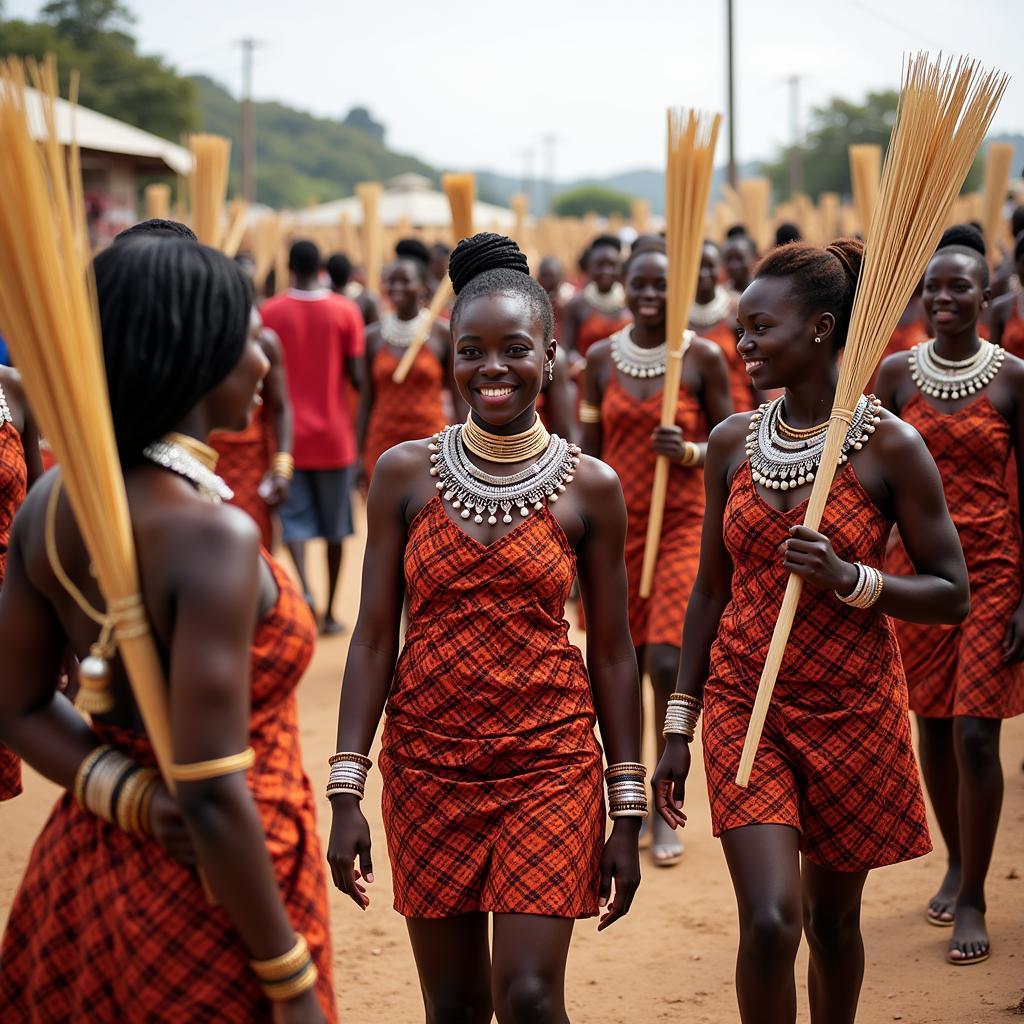Exploring African American Culture and Language
African American culture and language are rich and complex, deeply intertwined and shaped by a unique history. This vibrant culture has significantly influenced American society and continues to evolve, reflecting the diverse experiences and traditions of African Americans. This article delves into the fascinating connection between African American culture and language, exploring its origins, evolution, and enduring impact.
The Roots of African American Language
African American language, often referred to as African American Vernacular English (AAVE), possesses distinct grammatical structures, pronunciation patterns, and vocabulary. It’s crucial to understand that AAVE is not simply “slang” or “incorrect English.” It’s a fully developed language system with its own rules and nuances. Its origins can be traced back to the transatlantic slave trade, where enslaved Africans from various linguistic backgrounds were forced to communicate with each other and their captors. This resulted in the development of pidgin and creole languages, which served as the foundation for AAVE. You can find more information on this topic in resources like an African American dictionary.
One key feature of AAVE is its use of double negatives, which, unlike in Standard American English, do not cancel each other out but rather emphasize the negation. Another characteristic is the use of the verb “be” to mark habitual actions, a grammatical feature absent in Standard American English. These unique linguistic characteristics reflect the creativity and resilience of enslaved Africans in forging a means of communication under oppressive conditions.
Cultural Expressions through Language
African American culture and language are inextricably linked. The language serves as a powerful vehicle for expressing cultural identity, sharing stories, and preserving traditions. From spirituals and gospel music to hip-hop and spoken word poetry, AAVE has played a central role in shaping various art forms. Check out some African hip hop songs free download to experience this vibrant musical tradition. The use of call and response, a common element in African music and religious practices, can also be observed in AAVE conversations, demonstrating the deep-rooted connection between language and cultural expression.
Moreover, African American language often incorporates vivid imagery, metaphors, and proverbs that reflect the community’s shared experiences and values. These linguistic features add depth and richness to storytelling, allowing for nuanced expressions of emotions, humor, and social commentary. The language also plays a vital role in maintaining social cohesion and strengthening community bonds, fostering a sense of belonging and shared identity among African Americans.
The Evolution and Influence of African American Culture
African American culture has continuously evolved, adapting to changing social and political landscapes. From the Harlem Renaissance to the Civil Rights Movement and beyond, African American artists, writers, and musicians have used their creative voices to challenge injustice, celebrate their heritage, and shape the national discourse. This cultural influence extends to various aspects of American society, including music, fashion, literature, and even politics.
African American culture has enriched American society in countless ways, fostering greater understanding and appreciation for diversity. The influence of African American culture can be seen in the growing popularity of African-inspired fashion, hairstyles, and even body language. To delve deeper into the nuances of nonverbal communication, explore resources on African American culture-body language. You might also find interesting insights by exploring an African football movie.
How has African American language impacted American culture?
African American language has significantly impacted American culture, influencing slang, music, literature, and even mainstream English. Its unique vocabulary, grammar, and rhythmic patterns have permeated popular culture, enriching the linguistic landscape of the United States.
What are some common misconceptions about AAVE?
A common misconception is that AAVE is simply slang or broken English. In reality, it is a distinct dialect with its own complex grammatical rules and rich history.
You can explore different African hair cutting style for male as a further example of cultural expression.
Conclusion
African American culture and language are integral parts of the American tapestry. Understanding their interconnectedness is crucial for appreciating the richness and complexity of American society. By exploring the origins, evolution, and enduring impact of African American culture and language, we gain valuable insights into the diverse experiences and contributions of African Americans, fostering greater cultural understanding and appreciation.
FAQ
- What is AAVE? AAVE stands for African American Vernacular English, a distinct dialect with its own grammatical rules and cultural significance.
- How did AAVE originate? AAVE developed from the linguistic interactions of enslaved Africans during the transatlantic slave trade.
- Is AAVE considered a proper language? Yes, AAVE is a fully developed language system with its own unique structure and rules.
- How does AAVE influence American culture? AAVE has influenced various aspects of American culture, including music, literature, and everyday language.
- What are some key features of AAVE? Key features include double negatives, the use of “be” for habitual actions, and unique pronunciation patterns.
- Why is understanding AAVE important? Understanding AAVE promotes cultural awareness and appreciation for linguistic diversity.
- Where can I learn more about African American culture and language? Numerous resources, including books, academic articles, and online platforms, offer valuable information on this topic.
Need more help? Explore these related questions: What are the origins of African American spirituals? How has African American literature contributed to American society? What are some important figures in African American history?
When you need help, contact us at: +255768904061, kaka.mag@gmail.com or visit us at Mbarali DC Mawindi, Kangaga, Tanzania. We offer 24/7 customer support.


